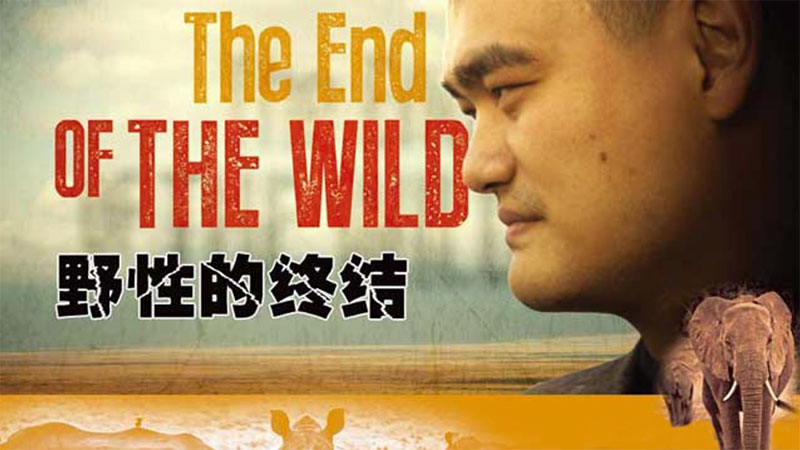ONE OF CHINA’S best-known celebrities, retired basketball superstar Yao Ming 姚明, has teamed up with domestic animal activists, as well as with international organisations such as WildAid, African Wildlife Foundation and Save the Elephants to campaign against the illegal wildlife trade.

Basketball superstar Yao Ming campaigns against the illegal wildlife trade. The End of the Wild is a documentary that follows Yao into the heart of Africa’s wildlife conservation crisis. It was first aired on CCTV in August 2014
Photo: onehourlife.com
Yao’s environmental activism began in 2006 when he joined a WildAid campaign targeting the massive Chinese consumption of shark fin soup 鱼翅羹, a traditional delicacy in southern Chinese cuisine but that involves great cruelty to sharks and endangers their population. Coupled with an official State Council ban on the consumption of shark fin and other expensive delicacies at lavish official banquets, the efforts of Yao, along with Jackie Chan and other celebrities, have resulted in a fifty to seventy percent decrease in the prices and sales of shark fins in China, according to a survey released in August 2014.
Since 2012, Yao has also used his considerable public influence to call for an end to the brutal practice of bear bile farming 熊胆. Bear bile, used in traditional Chinese medicine, is extracted from Asiatic black bears through the ‘free drip’ extraction method, in which farmers drill a permanent hole into the bear’s abdomen and gall bladder to allow bile to be tapped — a hideously painful process. The bears are also confined in cages.
Yao now wants to persuade China’s nouveau riche to give up the deeply rooted tradition of collecting and presenting as gifts lavishly carved elephant tusks and rhinoceros horns. He launched the ‘Say No to Ivory’ and the ‘Say No to Rhino Horn’ campaigns with WildAid and Save the Elephants in April 2013 and, in March 2014, during a speech at the opening session of the Chinese People’s Political Consultative Conference, of which he is a member, Yao called for a Chinese government ban on ivory sales. The End of the Wild 野性的终结, a documentary that follows Yao into the heart of Africa’s wildlife conservation crisis, aired on state broadcaster CCTV in August 2014.


